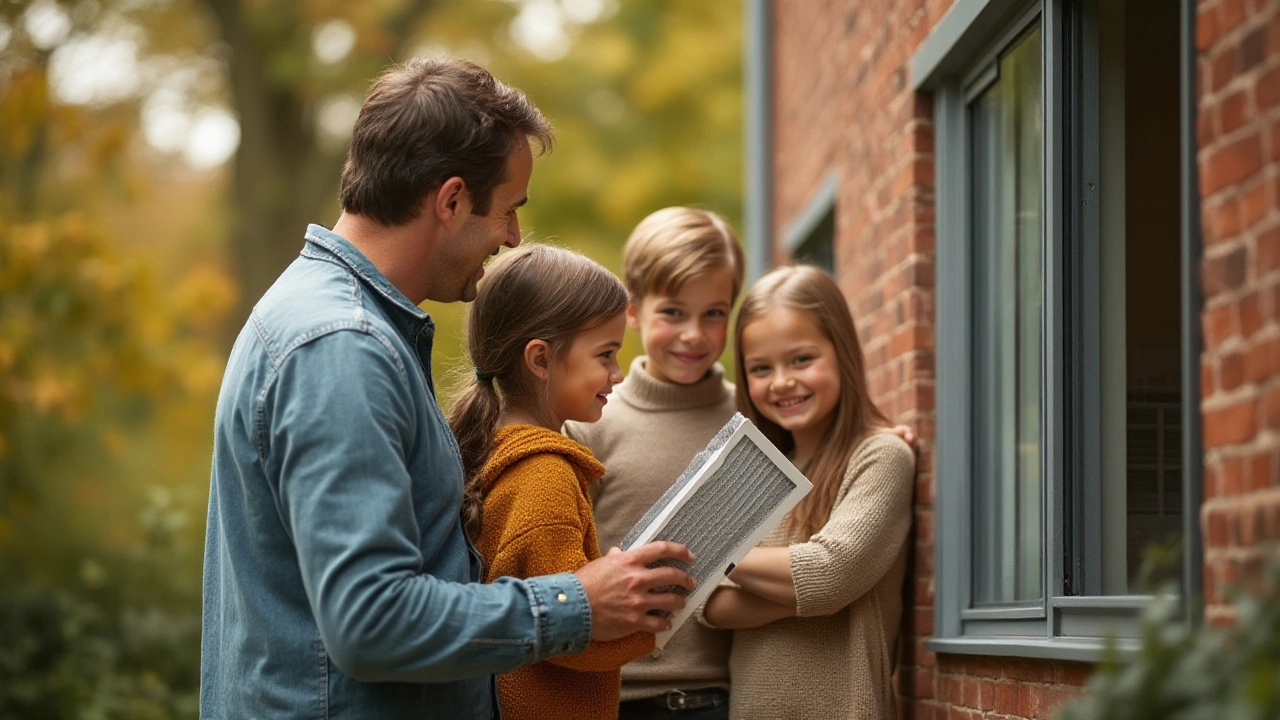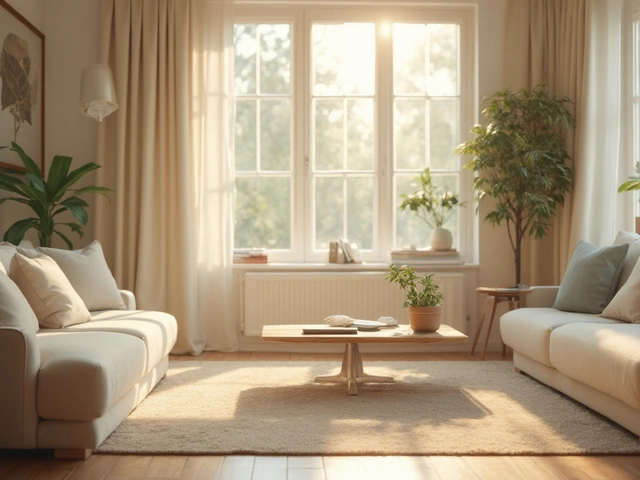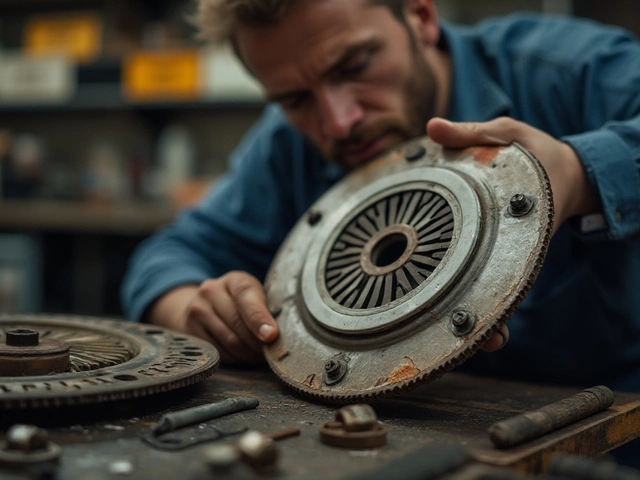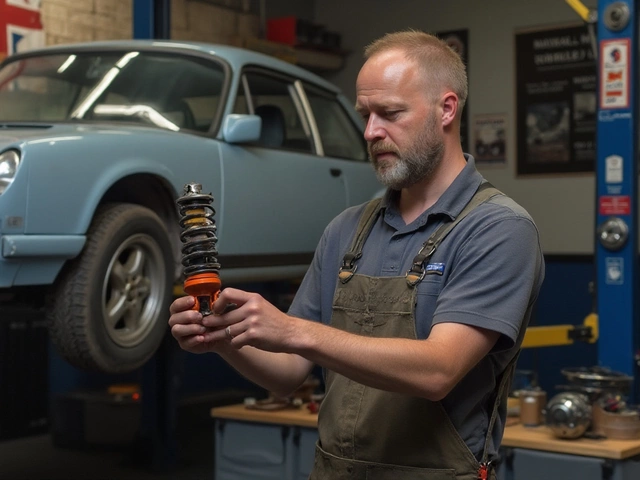Air filters are the unsung heroes of our home environments. These vital components ensure that the air we breathe is clean and free from dust, allergens, and even harmful pollutants. But how can you tell if your air filter is doing its job properly or if it's time for a change?
Recognizing the signs of a bad filter can save you from not only health issues but also costly repairs in the long run. In this article, we'll dive deep into the role of air filters, help you identify when they're on their way out, and share practical advice on how to keep them functioning at their best. Whether you're a seasoned homeowner or just getting started, these insights will arm you with the knowledge you need for clean and healthy air at home.
- Understanding Air Filters
- Signs of a Bad Air Filter
- How to Check Your Air Filter
- Tips for Maintaining Your Air Filter
Understanding Air Filters
Air filters are more than just simple screens placed in the ducts of your HVAC system; they play a pivotal role in maintaining the air quality of your living spaces. These filters are designed to trap particles, varying from larger debris to microscopic irritants like dust mites and pollen, thereby preventing them from circulating throughout your home. As you delve into the mechanics of how they work, you'll discover that not all air filters are created equal. From the basic mesh filters to high-efficiency particulate air (HEPA) filters, each type serves a unique purpose and boasts different levels of effectiveness.
The importance of selecting the right air filter cannot be understated. The American Society of Heating, Refrigerating and Air-Conditioning Engineers (ASHRAE) developed the MERV rating system—Minimum Efficiency Reporting Value—which is a critical factor to consider when assessing a filter's efficiency. While a higher MERV rating indicates better filtration, it's essential to balance your needs with your HVAC system's capabilities, as an overly restrictive filter can strain your system and lead to reduced efficiency.
Let's not overlook the evolving designs and technologies in air filters, which include pleated media, activated carbon, and electrostatic filters. Pleated filters, for instance, increase surface area and capture more particles, while activated carbon tackles odors and volatile organic compounds (VOCs). Understanding these elements and their intrinsic functions can empower you to tailor your choices to suit specific needs, such as allergies or pet dander issues. The journey to finding the perfect air filter can be quite enlightening, as it intertwines both scientific insight and personal preference, leading to a cleaner, healthier home environment.
As suggested by the Environmental Protection Agency (EPA), "Proper maintenance of air-handling systems, which include selection of the appropriate air filter, can substantially enhance indoor air quality and decrease potential health risks."
It's crucial to acknowledge the balance between air filter maintenance and environmental impact. Recent studies reveal that regularly replacing filters not only maintains efficiency but can also contribute significantly to energy savings. These energy reductions, when aggregated across households and businesses, have a noteworthy effect on diminishing carbon footprints globally—a reminder that small decisions in our homes resonate on a much larger ecological scale.
Signs of a Bad Air Filter
A bad air filter is like an uninvited guest at a party. Instead of making things better, it can quickly turn the situation sour. The performance and the air quality in your home significantly depend on the condition of your filter. So, identifying a failing filter is crucial not just for the efficiency of your heating and cooling systems, but also for your health and comfort. One telling sign of a bad air filter is a visible accumulation of dust on surfaces around your home. If you find yourself dusting more frequently than usual, it might be time to check that filter.
When an air filter becomes clogged, it loses its ability to trap dust, and this dust will settle on floors, tables, and shelves. You might also notice a rise in allergies or respiratory problems among the inhabitants of your home. Allergens such as pollen or pet dander can pass through overloaded filters, leading to uncomfortable symptoms for allergy sufferers. This condition is particularly prevalent when seasonal allergies are at their peak. A clearer sign could be a noticeable drop in the performance of your HVAC system. If it seems to be running more often or harder than before, it's a flag that the air can't move efficiently through a blocked filter. This not only impacts air quality but also strains the system, increasing energy costs. According to a study by the Department of Energy, dirty filters can make energy costs soar by 15%.
Moreover, unusual odors or a musty smell that lingers can also point to a filter issue. A filter that can't properly trap contaminants might allow them to circulate, leaving your home smelling less than fresh. It's essential to use your senses—sight, smell, and even hearing. Pay attention to unusual sounds, as sometimes, you'll find unusual whirring or clanking noises can be associated with a clogged filter. These noises are a reminder that soot or dust might be causing internal parts to struggle with the airflow. Take heed of these warnings and act promptly. Ignoring them could mean future repairs and mounting costs. Consulting your manual or a professional to know the specifics of your desired air quality is exactly what one should do when uncertainty lingers. As MIT's environmental expert Joshua Mayfield once said,
The air quality inside our homes plays a pivotal role in our everyday lives. Small changes and maintenance routines can make a world of difference.Let's not forget the longevity factor, neglect your air filter and its lifespan might be shortened. Regular maintenance conserves not only energy but also ensures you're not needing replacement parts prematurely. Keeping an eye out for these signs can save you from costly outcomes later on.

How to Check Your Air Filter
You might not give much thought to your home's air filter, but it plays a pivotal role in maintaining the air quality within your living space. Checking your air filter regularly is a simple yet effective way to ensure it's operating as it should. To begin, locate your air filter. It's generally housed within the return air duct of your HVAC system. Most units are located either in the basement, crawl spaces, or an easily accessible utility room. First, ensure your system is turned off before you start fiddling with the components. Safety comes first.
Once you've identified your air filter, it's time to inspect it. A visual inspection can reveal a lot. Remove the filter and hold it up to a light source. A fresh, clean filter should let plenty of light pass through. If the filter looks clogged, dirty, and blocks light, that's a sign it needs replacing. Most experts suggest checking your air filter every month, particularly during seasons when heaters or air conditioners are used frequently. This ensures it cleans the air effectively and shields your HVAC system from debris and dust build-up.
Next, consider the thickness and type of your filter. Filters come in varying thicknesses, and the thicker the filter, the longer it'll last. However, not all systems can accommodate thick filters, so always consult your system's manual. Moreover, the Minimum Efficiency Reporting Value (MERV) is crucial; it measures a filter's effectiveness. A higher MERV rating indicates better filtration, capturing smaller particles. For homes, a MERV rating between 8 and 13 is an ideal range. It offers a good balance of air quality without putting too much strain on your system.
It's also essential to listen for any unusual noises coming from your system. A struggling HVAC system might emit odd sounds if an air filter is clogged and obstructs airflow. Keep an ear out for whistles or excessive fan noise as these might indicate your filter is ready for a change. Regularly monitoring your energy bills can also help. If you notice a spike in costs without a clear explanation, it might be due to your system working overtime because of a faulty air filter.
According to the Environmental Protection Agency, “Proper maintenance of your heating and cooling system, including regular filter changes, can improve system performance, extend its lifespan, and ensure a cleaner, healthier indoor environment.”
For those inclined towards data, here's a brief snapshot:
| Filter Type | Expected Lifespan | Common Usage Areas |
|---|---|---|
| Fiberglass | 1 month | Residential |
| Pleated | 3-12 months | Residential/Commercial |
| High-efficiency | 6-12 months | Industrial/Hospitals |
Checking your air filter is straightforward, and while it might seem trivial, it's integral to maintaining a healthy indoor atmosphere. Regular checks can save you from inhaling dust and pollutants and prevent hefty repair bills related to more extensive HVAC issues. Dedicate a few minutes each month to this task, ensuring you consistently breathe clean, untainted air.
Tips for Maintaining Your Air Filter
Taking charge of your air filter's maintenance is like giving your home a clean bill of health. A well-maintained air filter ensures that your living space remains free from dust, allergens, and other pesky particles that would otherwise enter unnoticed. Regular maintenance doesn't just improve air quality but also elongates the life of your HVAC system. To kick things off, create a routine check schedule. Most filters recommend checking once a month, which can be easily remembered by pairing it with paying utility bills. During each check-up, remove the filter and hold it up against a light source; if light struggles to pass through, it's time for a cleaning or replacement. Reusable filters may require some soap and water, while disposable filters need a straight replacement, usually every three months depending on usage.
Another vital aspect involves selecting the right filter for your needs. Air filters come in various MERV (Minimum Efficiency Reporting Value) ratings, which measure their ability to capture particles. Higher-rated filters can trap smaller particles but may restrict air flow if your system isn't designed for them. Balancing efficiency with airflow is key, and consulting your HVAC manual or a professional can be beneficial. A high MERV filter in an incorrect system can strain performance, leading to energy inefficiency and increased wear and tear. Keeping this in mind ensures your home is a place of fresh beginnings every day.
To further enhance filter longevity, consider minimizing dust and dirt. Regular vacuuming and dusting, especially around vents and areas with high foot traffic, can reduce the dust load on your air filter. It's also wise to keep windows and doors closed during high pollen seasons or when outdoor air quality is compromised by pollutants or smoke. By maintaining control over the indoor air environment, you lessen the burden on the air filter, allowing it to operate optimally. Indoor plants can also be a double-edged sword; while they are natural air purifiers, they can also produce allergies and additional challenge to filters. Choosing hypoallergenic plants can help balance these effects.
Let technology be your friend in this endeavor. Many modern HVAC systems come with alerts or apps to notify you when it's time to check and replace your filters. Smart thermostats offer reminders and can even prompt you to schedule a professional service if needed.
"A small investment in proactive filter maintenance can save households hundreds in unforeseen HVAC repairs and electricity bills," says Dr. Lacey Franklin, an environmental systems expert.With smart management, monitoring your system's health becomes a seamless part of daily life.






